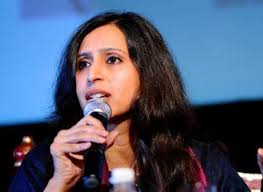New Delhi, Mar 14: India on Friday was mulling over the option of deporting The Wall Street Journal's South Asia deputy bureau chief for misreporting Delhi riots in which over 50 people were killed last month. However, the government denied that it had made any such decision.
Ministry of External Affairs spokesperson Raveesh Kumar said that a complaint was registered against Eric Bellman, the WSJ South Asia deputy bureau chief based in New Delhi, by a private individual on the government's online grievance redressal platform.
"Referring the complaint to the related office is a routine matter as per standard procedure. No such decision on deportation has been taken by the Ministry of External Affairs," Kumar said.
However, government-funded Prasar Bharati News Services had earlier tweeted screenshots of the complaint which was filed by an undersecretary in the Ministry of External Affairs, Vinesh K Kalra, saying that the ministry has asked the Indian embassy in the US to "look into the request for immediate deportation of Bellman for his "anti-India behaviour".
The official had complained to the embassy about Bellman's controversial reportage on the killing of an Intelligence Bureau staffer named Ankit Sharma.
The WSJ had reported that Ankit Sharma's brother had said that he was killed by a mob belonging to a particular religious community. Ankit's brother later told Indian media that he never spoke to the WSJ reporter.
After the Prasar Bharati tweet got circulated widely on social media, the government backtracked and said that no such decision has been taken.






Comments
Add new comment